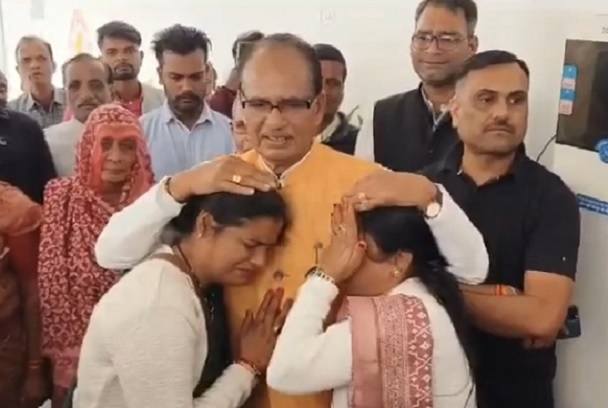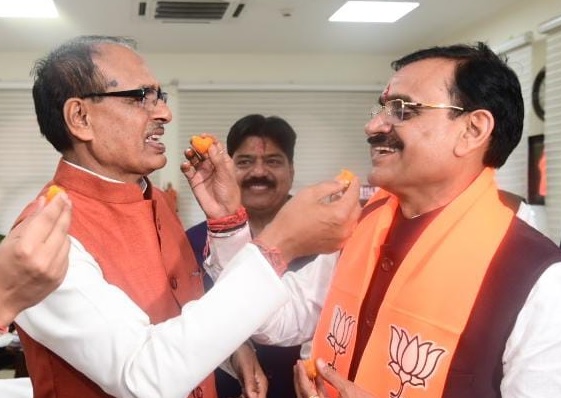INSIGHT: Indian constitution's endurance and the forthcoming challenges

Shahid P Sayed
NewsBits.in
India is a deeply religious country and it was the biggest challenge for the lawmakers to deal with a vast populace that follows different religions and have their own sacred texts.
Hence, the law enforcers were aware of the complexities of the country and had anticipated the issues that could arise in a multi-religious and multi-cultural society. Especially, when people are touchy and hyper sensitive about religion.
The Constitution of India that was adopted on January 26, 1950 is the guiding document that lays down the framework for governance and delineates the fundamental rights and duties of its citizens. Over the past seven decades, it has endured through several hallenges, embodying resilience and adaptability.
However, the endurance of the Indian Constitution continues to face new challenges in the contemporary era, necessitating a critical examination of its prospects for the future. The Indian Constitution emerged in the aftermath of colonial rule, reflecting the aspirations of a diverse nation striving for freedom, justice, and equality.
Crafted by stalwarts like Dr. BR Ambedkar, it blends elements of liberal democracy with socio-economic rights, ensuring a balance between individual freedoms and collective welfare. The Constitution enshrines principles of secularism, federalism, and social justice, embodying the pluralistic ethos of Indian society.
Despite its robust foundation, the Indian Constitution faces multifaceted challenges that test its endurance in contemporary times.
The first major aspect is erosion of democratic norms. Rise of populism and authoritarian tendencies threaten the democratic fabric enshrined in the Constitution.
Also, pressure on institutions such as the judiciary, media, and civil society weaken the checks and balances that are essential for a vibrant democracy. For example ,if it is easy for a leader to use religion as a tool to further his cause in return for a the lemmings to be taken to utopian promised land.
Social Fragmentation is the second most important aspect: Deep-seated social divisions based on caste, religion, and ethnicity pose challenges to the constitutional ideals of equality and fraternity. Identity politics often exacerbates these fault lines, undermining social cohesion and fostering polarization.
For example even after 75 years of India’s freedom its hard for a certain person belonging to a certain caste to take his bride home riding a horse. Economic Inequality is yet another issue. Despite significant progress, India continues to grapple with pervasive poverty and economic disparity.
The failure to realize the socio-economic rights enshrined in the Constitution perpetuates marginalization and undermines the principle of distributive justice. 'Judicial Backlog and Access to Justice' is yet another area of concern. The Indian judiciary faces a staggering backlog of cases, leading to delays and denial of justice for many.
Accessibility and affordability remain significant barriers, particularly for marginalized communities, impeding the realization of constitutional rights. But, despite all the above mentioned points, there are Prospects for Endurance.
Indian Constitution holds the potential for renewal and resilience as it is practiced and promoted by those who know the difference between religious rules versus human supplied rules for the benefit of humanity.
1. Constitutional Amendments: The amendments to adapt the Constitution in view of the evolving socio-political realities can enhance its relevance and effectiveness. However, such amendments must uphold the core principles of the Constitution and ensure inclusivity and consensus building.
2. Strengthening Institutions: Protecting and strengthening democratic institutions is imperative for safeguarding the constitutional order. Ensuring their autonomy, accountability, and integrity is essential to counter threats of authoritarianism and uphold the rule of law.
3. Promoting Social Justice: Addressing socio-economic inequalities through targeted policies and inclusive development initiatives is crucial for realizing the Constitution's vision of social justice. Empowering marginalized communities and ensuring their participation in decision-making processes are essential steps in this direction.
In the words of Dr. BR Ambedkar, “Constitutional morality is not a natural sentiment. It has to be cultivated. We must realize that our people have yet to learn it. Democracy in India is only a top-dressing on an Indian soil which is essentially undemocratic.”.
These words still holds true as Indians have yet to understand the true meaning of democracy.
4. Legal Reforms: The reforms aimed at expediting judicial processes, enhancing legal aid, and promoting alternative dispute resolution mechanisms can improve access to justice and alleviate the burden on the judiciary. Additionally, efforts to bridge the gap between legal provisions and ground realities are essential for effective implementation of constitutional rights.
5. Educational reforms: The Indian constitution promotes ‘development of scientific temper’ but the will to promote it seems missing at the present moment of constitutional history in India. There is an urgent need to draw a distinction between religious utopia and the realities of our world.
The endurance of the Indian Constitution is contingent upon its ability to adapt to changing circumstances while upholding its core principles and values. Addressing the challenges posed by political, social, and economic dynamics requires concerted efforts from all stakeholders – government, civil society, and citizens.
By navigating these challenges with resilience and foresight, India can ensure that its constitutional democracy continues to thrive and fulfill the aspirations of its people for generations to come. As Dr. Ambedkar said, “However good a constitution may be, it is sure to turn out bad because those who are called to work it happen to be a bad lot. However bad a Constitution may be, it may turn out to be good if those who are called to work it happen to be a good lot,”
[Shahid P. Sayed is a senior Advocate who practices in the High Court. He holds a degree in engineering, MBA from USA apart from LLB, DMJ & FS]









